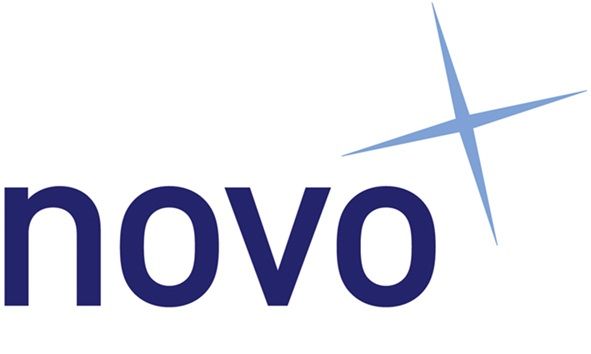Could Virtual Interviewing Improve HR’s Green Credentials?

As employers move back to more in-person interaction, we’re seeing the return of the face-to-face job interview. But while there are clear advantages to getting the full picture of the candidate, could more virtual interviewing boost HR and recruitment teams’ contribution to saving the planet? Euan Cameron looks at the factors involved.
It’s always been one of the most traditional rites-of-passage in anyone’s working life. But today, the in-person job interview isn’t just out of date – it can be toxic.
Hiring effectively has rarely been more important. Bringing in the right person at the right time, while balancing challenging economic conditions and the ongoing threat of recession means the process needs to be as efficient, timely, and successful as possible.
What if we could do that, and also make it as sustainable a process as possible? What’s more, what if I were to tell you that cutting back on unnecessary in-person interviews could be one of the biggest steps an employer can make towards tangible action on their carbon responsibilities?
Firstly, it’s right to acknowledge that in-person interviews have their place. For roles where personal interaction and communication is involved – in the care or health sectors for example – or for roles where practical assessment is required, there are clear benefits and necessities to face-to-face meetings.
However, for the vast majority of interviews at all levels, switching from in-person to remote can save time, money, and millions of kilograms of CO2 emissions every year. This becomes even more pertinent as more firms adopt long-term hybrid and fully asynchronous working policies nationally and internationally.
Making an impact
As the cost-of-living crisis and threat of recession escalate, I can already see sustainability slipping down the priority list for many businesses. However, climate change is the most pressing issue affecting all of us, and every employer must factor waste, energy, and resources into all major strategic decisions. At scale, even a seemingly minor move can have a significant impact on the world we live in.
For every recruitment meeting held, we estimate the candidate or interviewer’s journey to and from the interview can result in an average 5.8 kilograms of CO2 released into the environment (based on a return car journey of an average of 13 miles each way). This is multiplied even further if additional people are involved, depending on the make-up of the panel.
To illustrate my point further, according to the ONS, there were roughly 1.2 million job vacancies between June and August last year in the UK alone. Research from Standout CV indicates an average of six people are interviewed for every position advertised in the UK.
If just one stage is held in person, that would be at least 14.4 million candidate and interviewer journeys, and a conservative estimate of 41,760 tonnes of CO2 released into the environment in one country in one quarter. For context, you’d need to plant more than 1.9 million trees to offset the carbon.
Businesses of all sizes have a huge part to play in the economy and the environment. Corporate leaders set an example for employee behaviour, and even small steps like limiting these journeys can make a huge difference and set a positive tone for everyone involved. With more focus from candidates on environmental, social and governance (ESG) issues, business success and sustainability must not be mutually exclusive – but inclusive, complementary, and dynamic.
Virtual interviewing
Like many businesses we now donate at least 1% of all revenues to carbon removal through the Stripe Climate coalition, but while carbon offsetting schemes and planting trees are a start, businesses must make wholesale cultural and behavioural changes to make a real impact.
A shift to asynchronous meetings and virtual interviewing is one of the most tangible steps a business can take on climate change. It’s also one of the most effective and measurable ways to support sustainability strategies – benefiting the business in more ways than you think.
Climate conscious candidates – particularly in younger generations – are now choosing employers because of their green credentials. Not only will the carbon savings firms be attractive to these potential employees, but so will the environmentally conscious candidate experience they enter.
At higher volumes, the environmental benefits of going online are exponential
The shift to video conferencing during the pandemic revolutionised the way we all work, with hybrid, flexible, and home-based rota patterns increasingly the norm for many employees. The next logical step of this is to make the hiring process virtual too.
Asynchronous working and virtual interviewing also opens up massive new recruitment pools and markets, across the country and around the world – further spreading efficiency and sustainability savings. It opens up the door to international talent without the need for unnecessary overseas travel.
Better balance
For all modern employers, the work/life balance should be a driver for employee wellbeing and HR strategies. Increasingly important is the balance between business and sustainability.
Leveraging virtual interviews is a simple and people-first way of offsetting carbon footprint and improving efficiency and convenience for employers and candidates.
This is particularly true when it comes to high volume hiring where scheduling interviews can be challenging for both sides of the table. At higher volumes, the environmental benefits of going online are exponential.
The best part of this system is that virtual interviews can work well for businesses of all sizes, and most video platforms offer free basic services to start with, so there’s no excuse not to try it out.
Businesses must look for solutions beyond planting trees, carbon offsetting, or cutting out paper, and think more about carbon-responsibility by making an outdated recruitment process sustainable.
Geography should not be a barrier to finding the best talent anywhere in the world – and we should all play our part in helping save it.
Originally published on Personnel Today, https://www.personneltoday.com/hr/virtual-interviewing/












